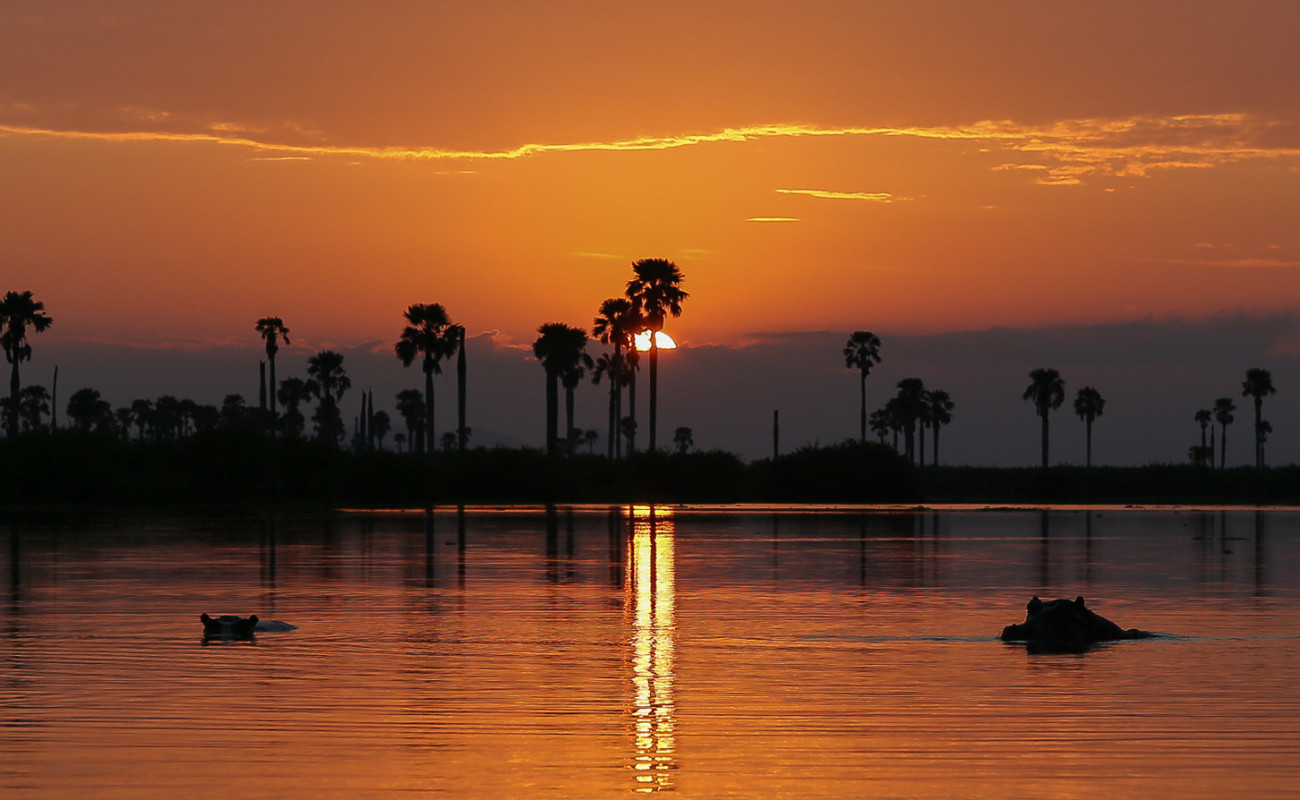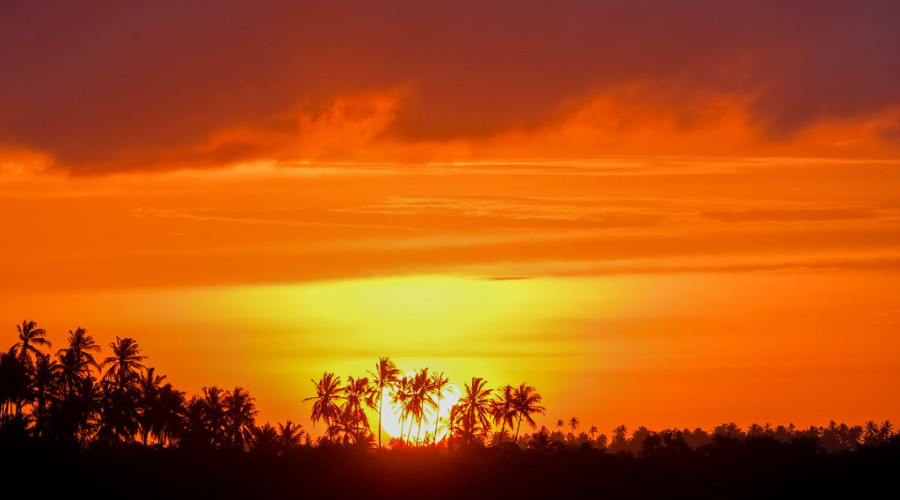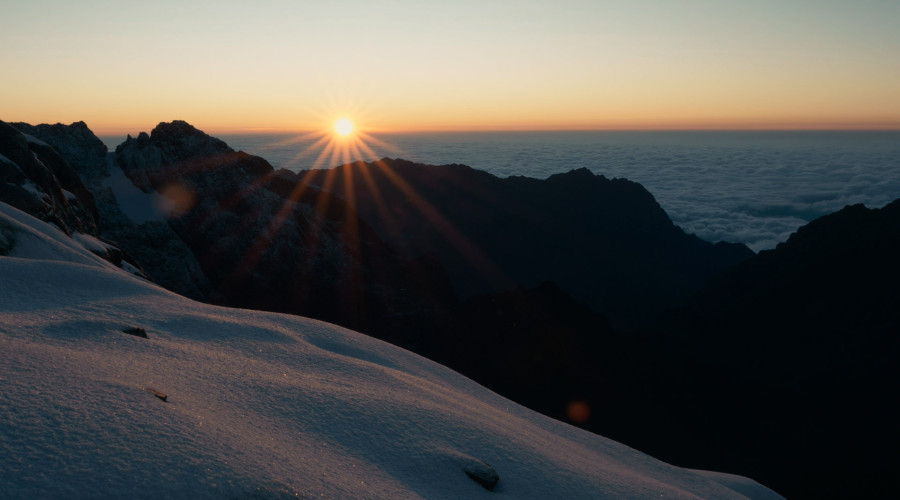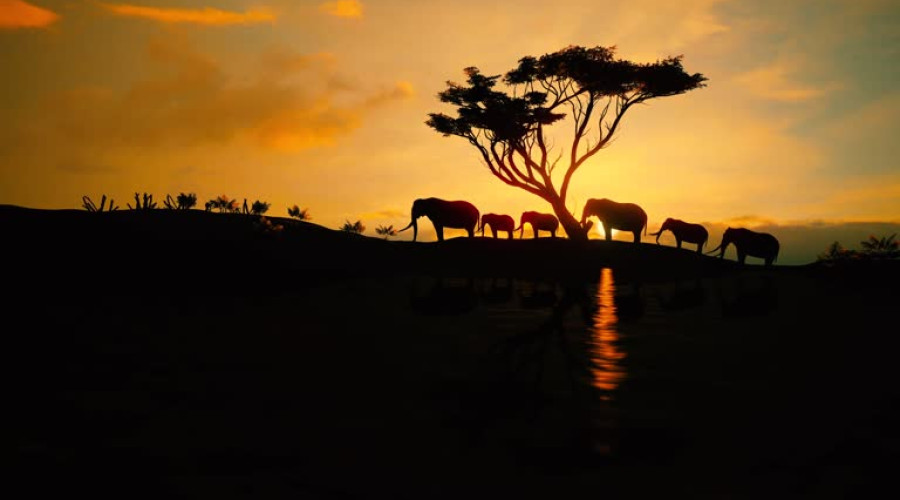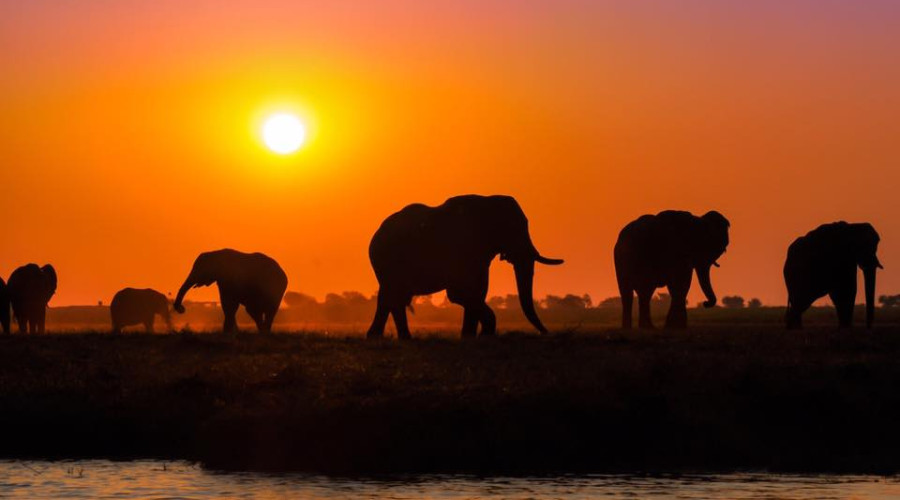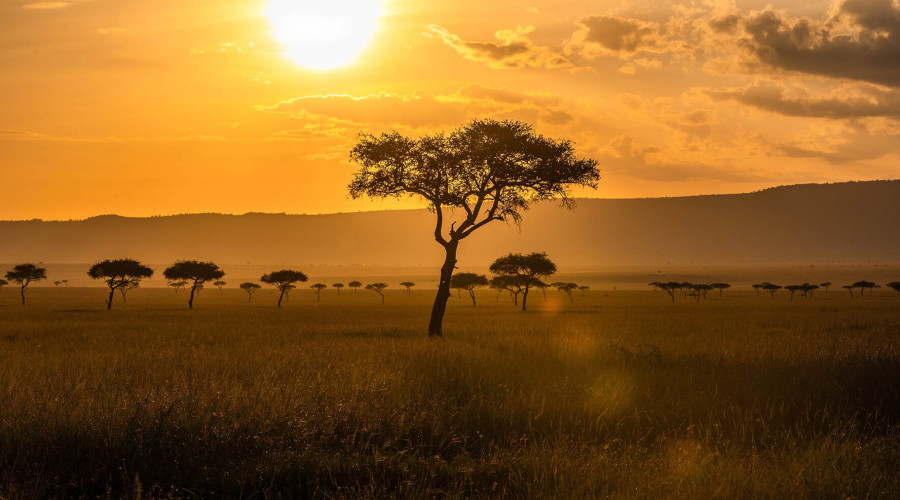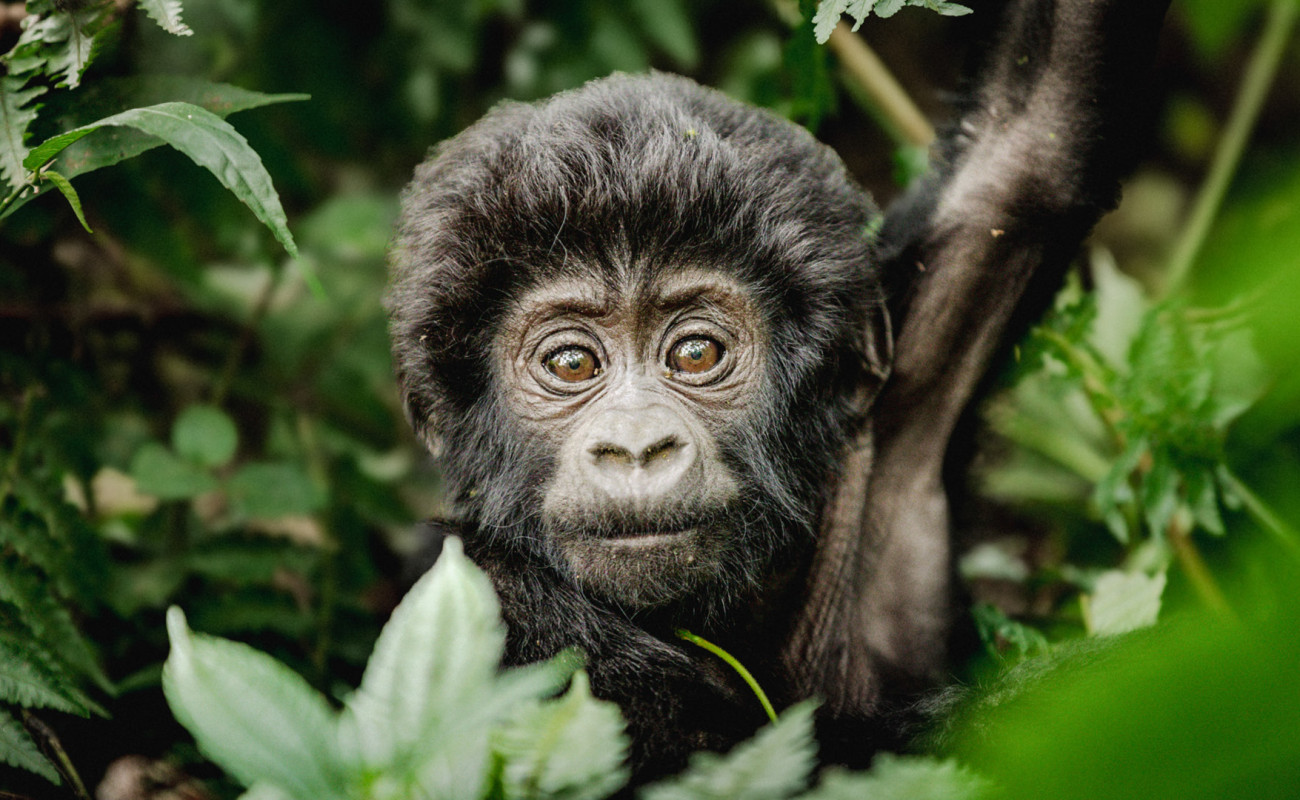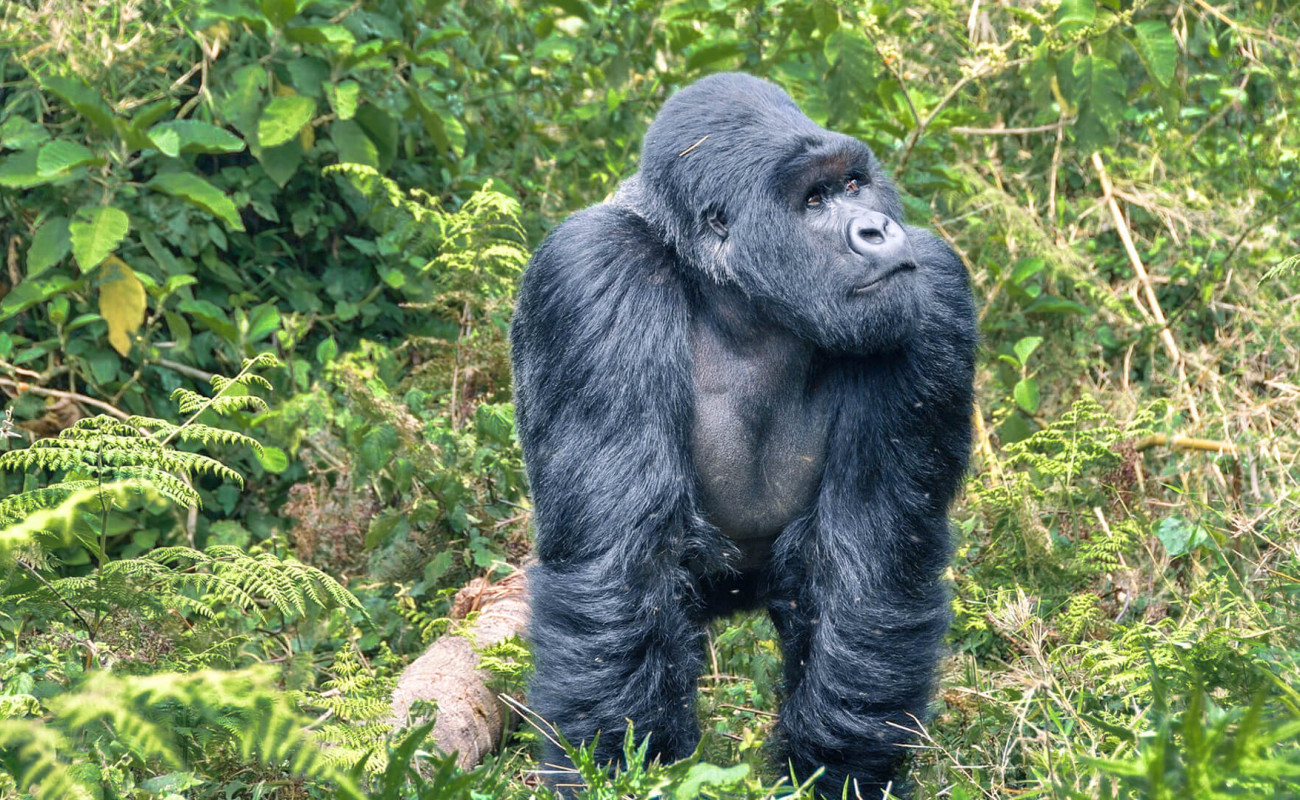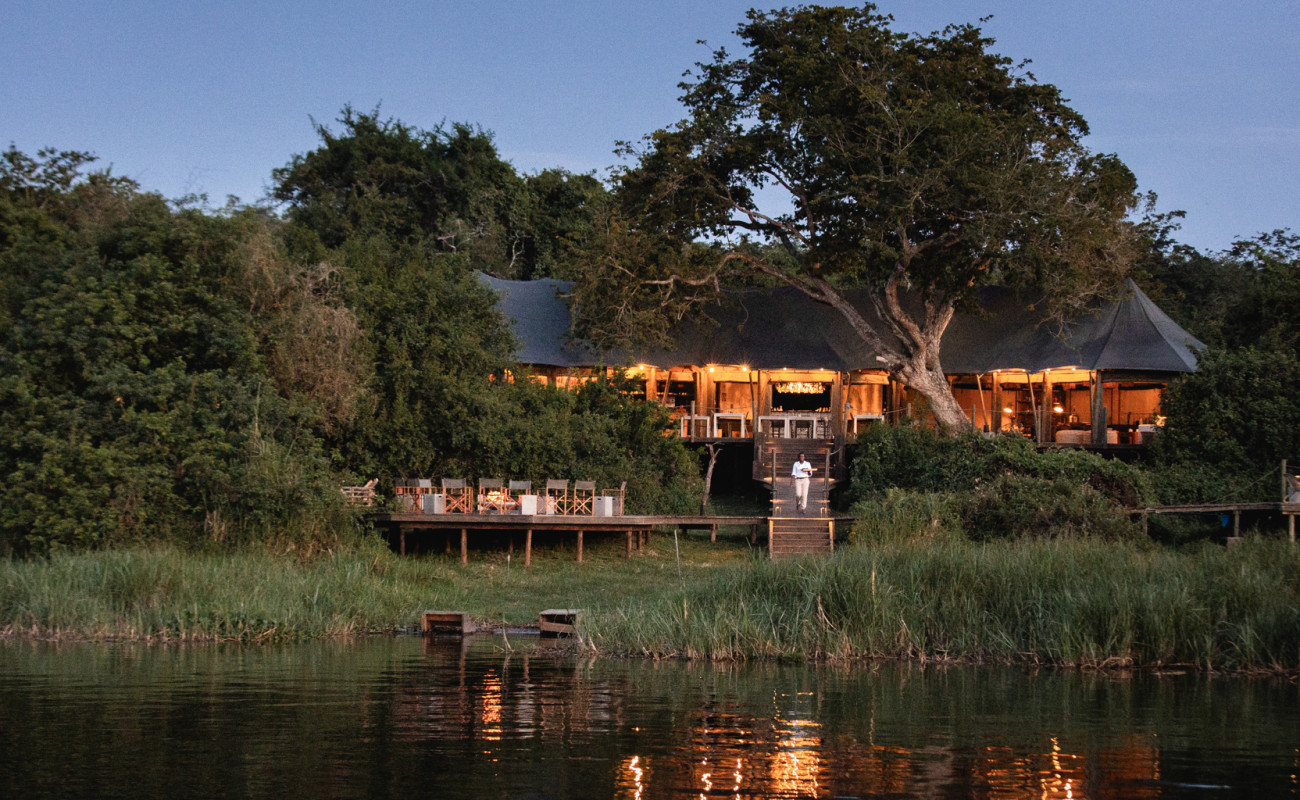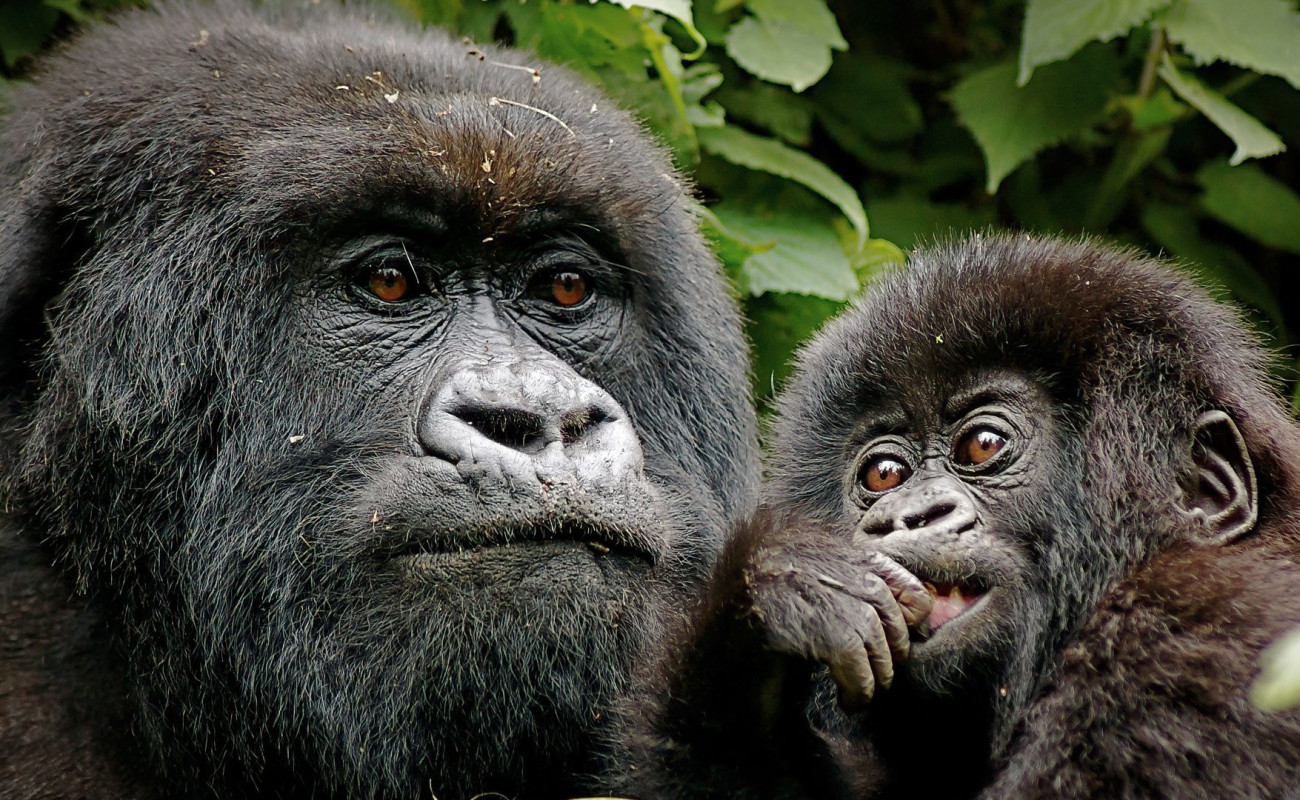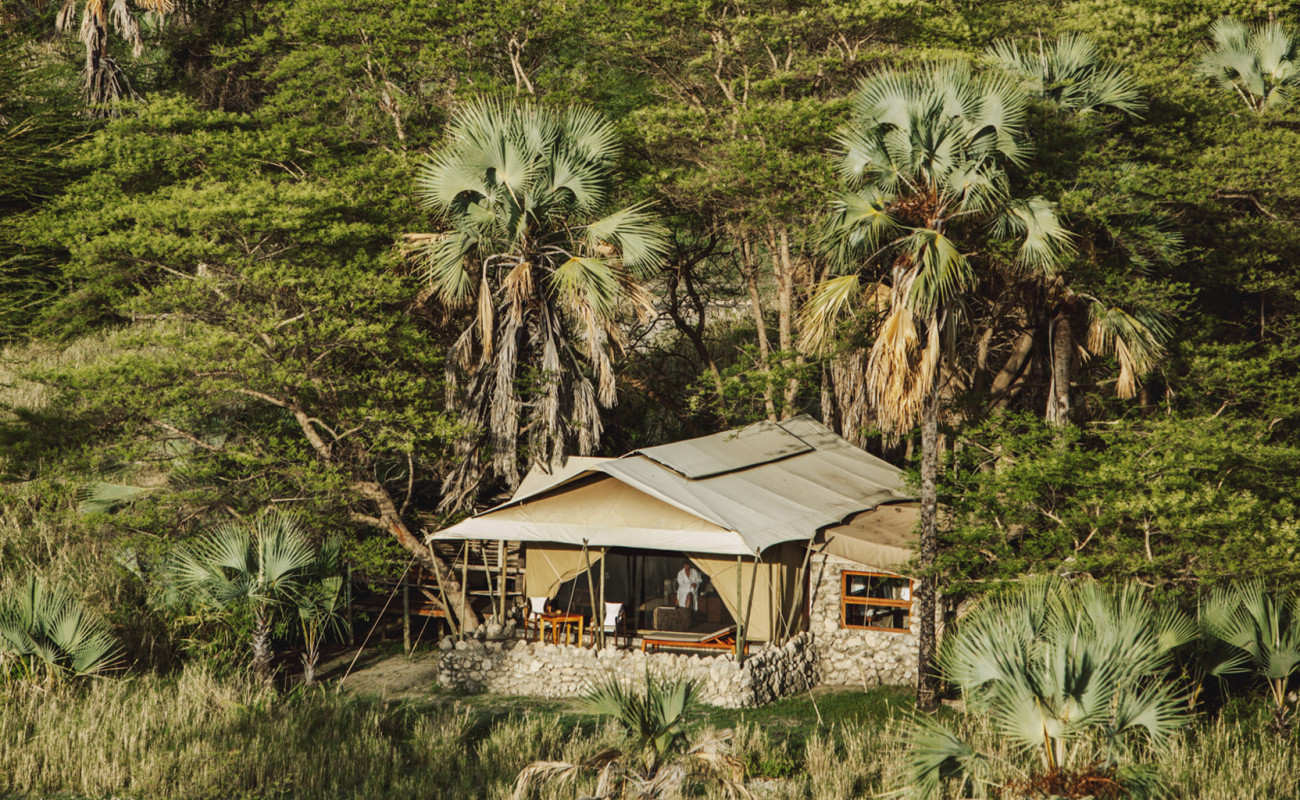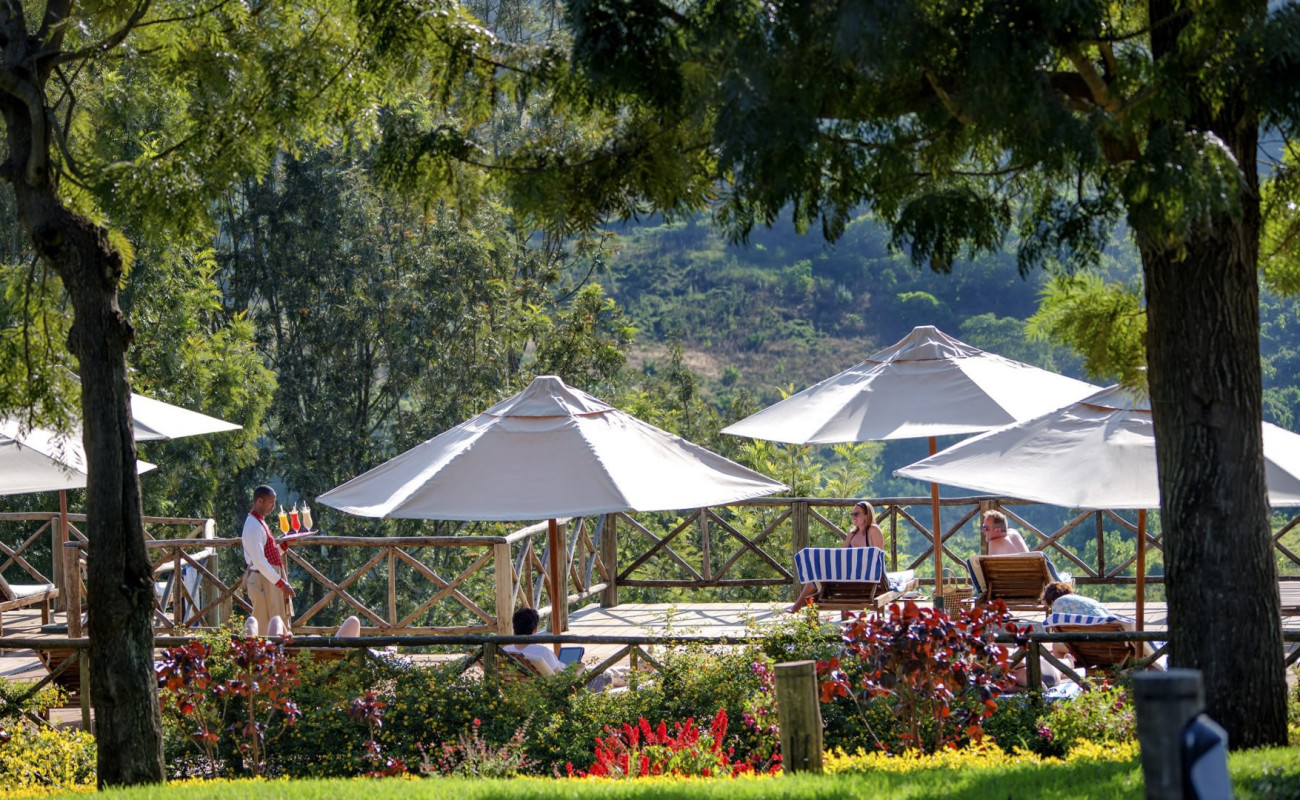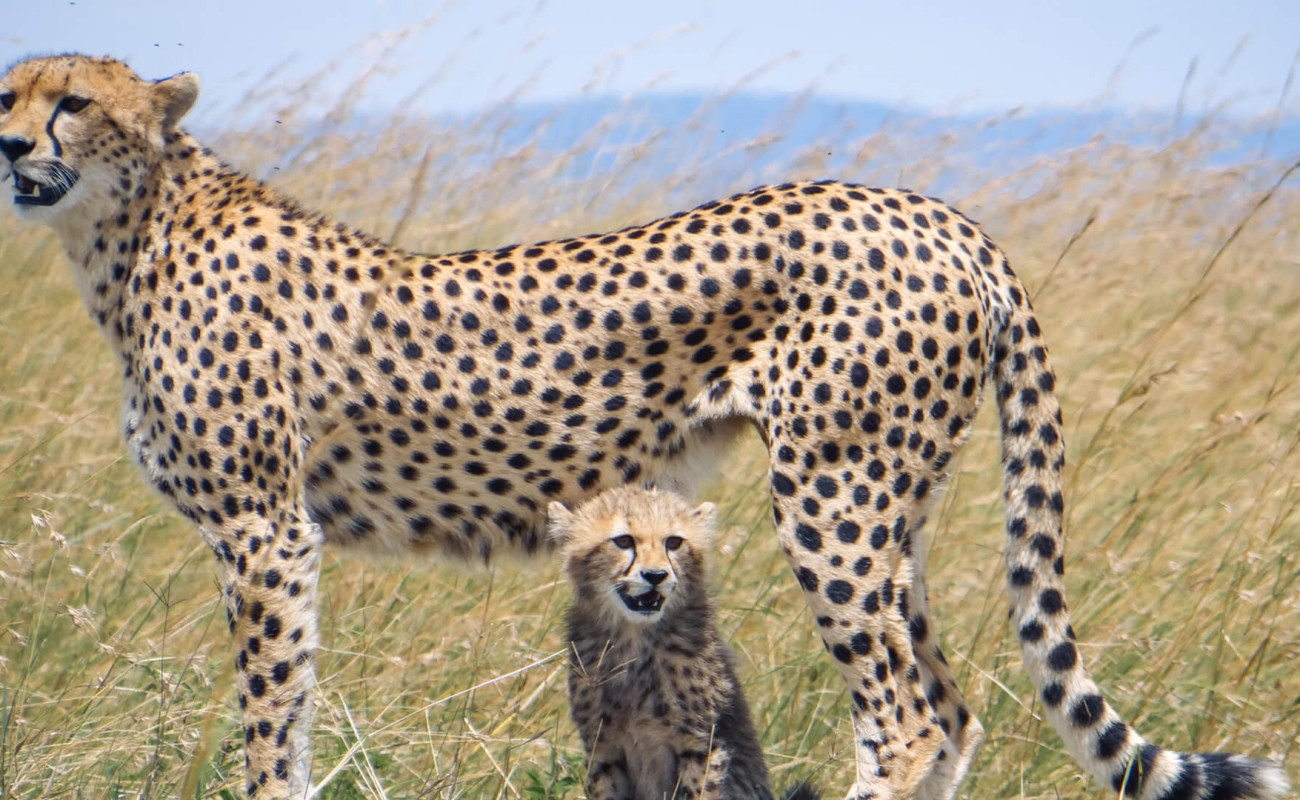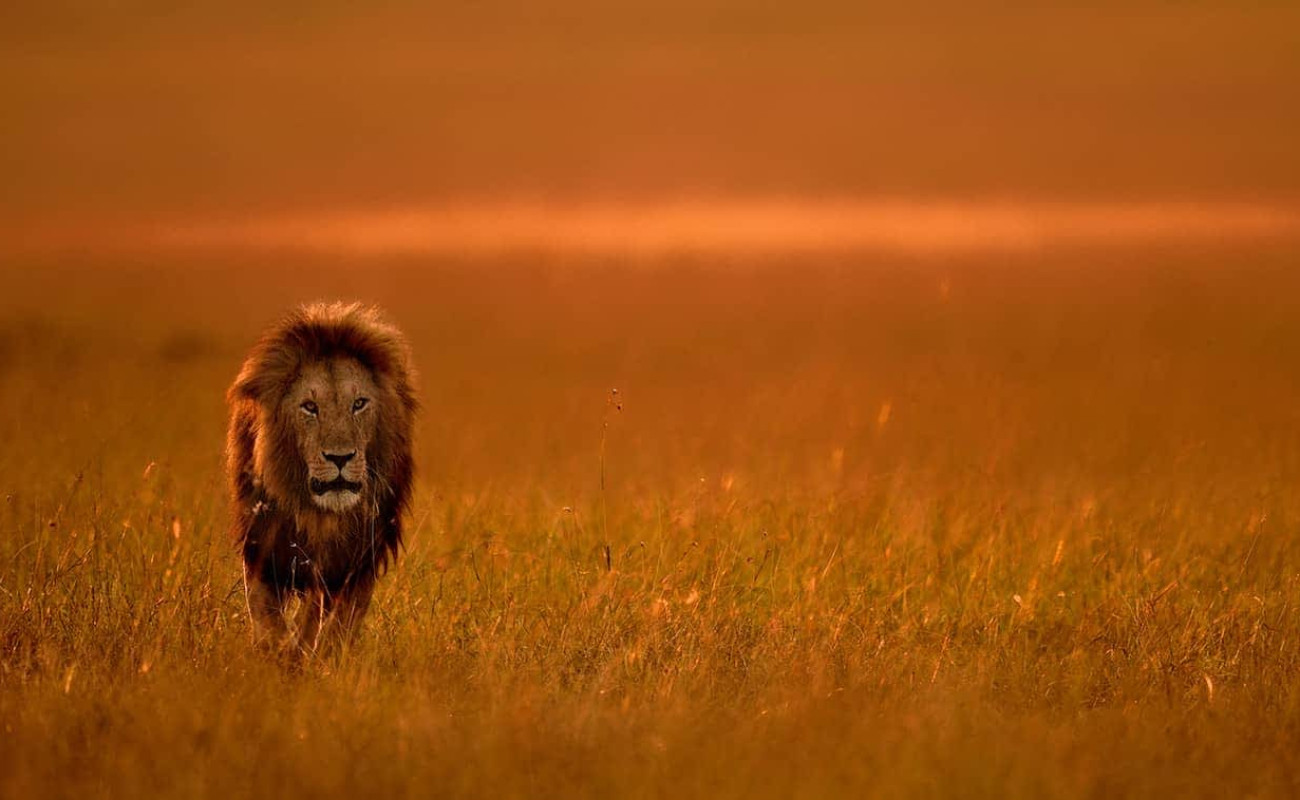If sunrise is birth, then sunset is ceremony. By 6:30 PM, the sun begins to lower, and the East African sky becomes a stage of fire.
In Tarangire National Park, the giant baobabs are silhouetted against an amber horizon. Their ancient trunks, swollen and gnarled, appear like dark giants holding up the sky. Elephants walk slowly in single file, dust rising around their feet, glowing orange in the fading light.
In Ngorongoro, the crater walls trap the final rays, painting them with streaks of violet and pink. The forests fall into shadow while the rim glows like a crown. Herds of buffalo and gazelles return to rest, while hyenas call out, their laughter echoing into the twilight.
By 6:45 PM in Serengeti, the horizon explodes into crimson and deep purple. Giraffes stand tall, their necks outlined against the fire. Vultures settle onto trees. The temperature drops slightly, and the air feels heavy, filled with the scent of dry grass and dust. And then, almost suddenly, the sun disappears, swallowed by the horizon.
On the Zanzibar coast, sunset is the slow melting of the sky into the ocean. The sun sinks into the water, leaving behind a path of liquid fire stretching to the shore. Locals gather along the beach, children playing as the sky shifts from orange to pink, pink to violet, violet to blue. By 7:00 PM, the first stars pierce the darkness, sharper and brighter than anywhere in the world.

